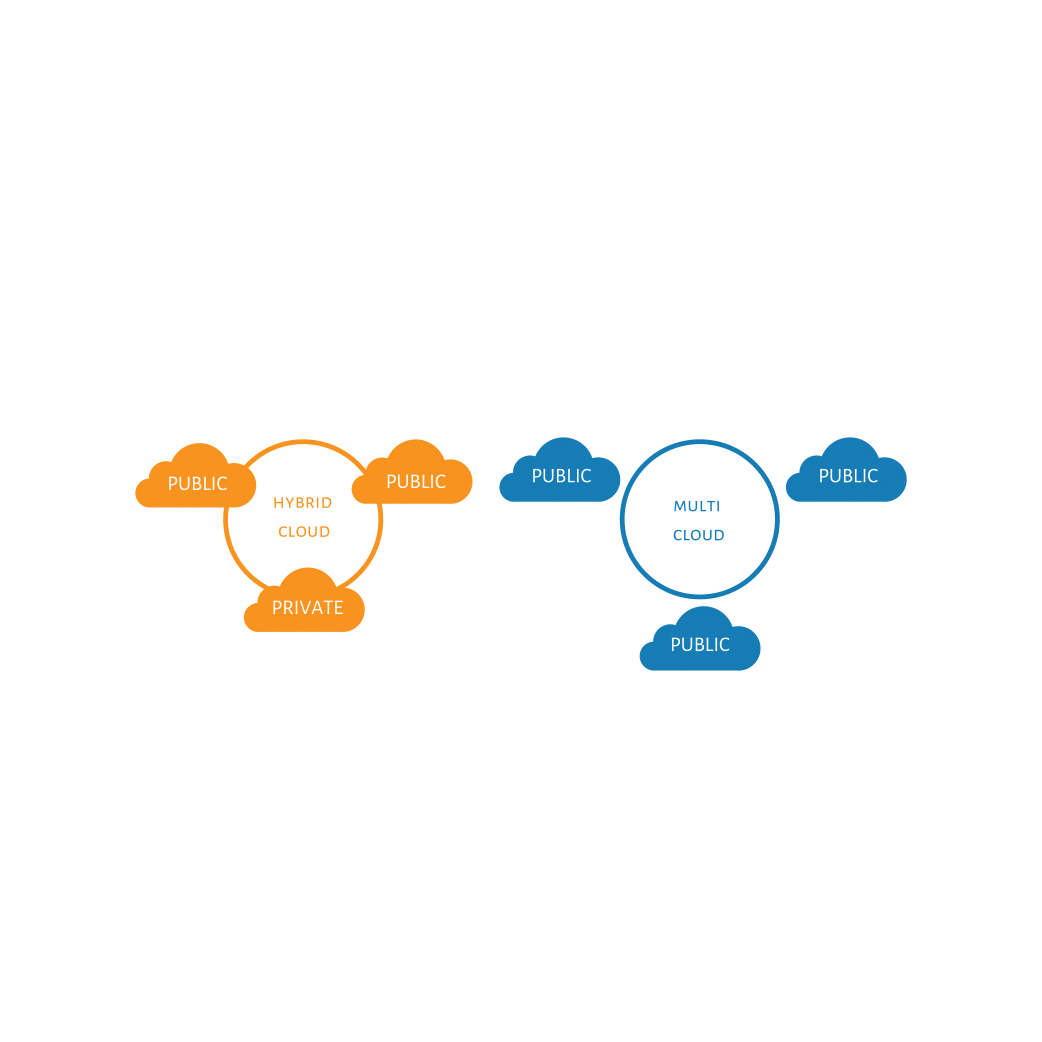Did you know our Platform FLEX has the ability to be Private, Public or part of Hybrid Cloud capabilities.
So lets talk about Multi-Cloud…
What is Multi-Cloud?
Multi-Cloud is a concept / design approach, rather than an actual device or technology. At its heart, it is based on sourcing multiple public and/or private clouds from different vendors and using them either: for their unique capabilities to perform one tailored task, or; to provide additional resilience and scale. This would be undertaken as opposed to going for a singular cloud solution for hosting, storage, or the full application stack to maximise re-use.
This approach can deliver multiple benefits, including:
Flexibility – A Multi-cloud deployment can leverage multiple IaaS (Infrastructure-as-a-Service) vendors, or it could use a different vendor for IaaS, PaaS (Platform-as-a-Service), and SaaS (Software-as-a-Service)services based on the needs of the applications / workloads.
Resilience – Multi-cloud can also be used solely for the purpose of improving redundancy or system back-up, as it allows organisations to avoid the pitfalls of single-vendor reliance (lock-in) and vendor outages.
Optimisation – It allows an organisation to have more customisability when developing a cloud solution as they have access to more advanced / specialised capabilities, often decreasing costs and increasing flexibility compared to using more generalised resources.
How can a Multi-Cloud solution save you money?
Multi-cloud infrastructure allows organizations to maintain a ‘hybrid cloud like’ environment, without the need for on-premise infrastructure, that enables a combination of security and cost savings at the same time. The most security-focused / sensitive workloads can be kept in the sovereign private cloud solutions while processing regular business data and apps in cost-effective public cloud networks, in turn saving you money.
Multi-Cloud VS Hybrid Cloud
Hybrid cloud refers to a single solution that uses two different deployment types. This is often defined as an on-premises private cloud (or traditional physical) environment (e.g. for a secure database) that is connected to a public cloud environment (e.g. for a scalable front-end), meaning different environments are used for different tasks, but the components of a hybrid cloud typically work together and would normally be managed through consistent tooling. As a result, data and processes tend to intermingle and intersect in a hybrid environment.
Multi-cloud, however, is where two or more clouds types are deployed, and any service models may be used for different solutions. This means that there may be little to no intermingling of tasks and different cloud offerings can be used independently of one another to perform specific tasks within businesses. An example of this would be if one public cloud was to be used for data analytics, one might be used for messaging and collaboration, and a private cloud might be used for traditional line of business applications.
Why should I go to Nine23?
Nine23 offer multiple cloud solutions. Private Cloud (FLEX), Public Cloud (AWS, Azure, Google), Hybrid Cloud and a Community/Multi-Cloud offering.
All of these offerings are underpinned by our Platform FLEX, a next-generation cloud platform infrastructure that is fully managed and Nine23-owned. It enables the end-user to function more effectively and improve productivity in the field; accessing, sending and sharing data as needed, without having to return to base for reporting or admin.
Nine23 are your trusted partner, we are here to help you from start to finish and it is our mission to deliver complete, secure IT solutions to enable the end-users in today’s workplace.
To start your journey with us please fill in the contact form or call us on 023 8202 0300.
For Public Sector organisations please find our solutions and services on the Digital Marketplace.



